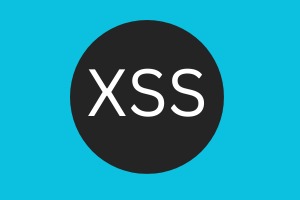API Cross-Site Scripting Attacks
Date Created: 11 Nov 2023Share:
In the dynamic realm of cybersecurity, APIs are indispensable for facilitating the smooth exchange of data between applications.

API Cross-Site Scripting Attacks: A Comprehensive Guide to Prevention
In
the dynamic realm of cybersecurity, APIs are indispensable for facilitating the
smooth exchange of data between applications. However, their extensive use also
renders them susceptible to a range of cyber threats, with cross-site scripting
(XSS) attacks standing out as a prominent concern.
This blog post aims to furnish a comprehensive understanding of API XSS attacks, delineate their potential ramifications, and outline effective preventive measures.
Comprehending API Cross-Site Scripting Attacks
API Cross-Site Scripting (XSS) attacks transpire when malevolent scripts infiltrate a trusted website or application. Specifically, within the API framework, these attacks focus on the client-side scripts that operate in a users browser, taking advantage of vulnerabilities to execute harmful code. The repercussions may encompass unauthorized access, data pilferage, session hijacking, and other grave security breaches.
Common Techniques Used in API XSS Attacks
Reflected XSS: Malicious code is embedded in a URL or other input fields,
and when a user clicks on a manipulated link, the script executes in the
context of the victims browser.
Stored XSS: The malicious script is injected and stored on the server, often within
a database. When a user accesses the compromised data, the script is executed,
leading to potential security compromises.
DOM-based XSS: This variant occurs on the client side, where the Document Object Model (DOM) is manipulated by injecting malicious code, leading to unintended consequences in the application.
Preventing API Cross-Site Scripting Attacks
Input Validation and Sanitization: Ensure comprehensive validation of
input data on both the client and server sides. By sanitizing user
inputs—either through removal or encoding of potentially harmful
characters—organizations can thwart attackers attempting to inject malicious
scripts.
Content Security Policy (CSP): Integrate CSP headers into your
security strategy to confine the types of content permitted to load on a web
page. This strategic implementation assists in mitigating the impact of XSS
attacks by clearly defining trusted sources of content.
Adherence to Secure Coding Practices: Educate developers on secure coding
practices to minimize vulnerabilities within the API codebase. This involves
meticulous handling of user input, rigorous output encoding, and the
utilization of secure APIs for dynamic content creation.
Regular Security Audits and Code Reviews: Execute routine security audits and
code reviews to pinpoint and rectify potential vulnerabilities embedded in the
API codebase. This proactive approach facilitates early detection and
mitigation of security threats, fortifying the overall security posture.
Web Application Firewalls (WAF): Enhance your defines mechanisms by deploying a WAF, an additional layer of protection that actively monitors, filters, and blocks HTTP traffic between a web application and the internet. By scrutinizing patterns and signatures indicative of malicious activity, a WAF is proficient in detecting and mitigating XSS attacks.
Cripsas M2M API Security Service
Cripsas
M2M API Security Service stands out as a formidable solution to combat XSS
attacks. Heres why:
Behavioural Analysis: Cripsas M2M API Security Service employs advanced behavioural
analysis to identify patterns indicative of XSS attacks. By continuously
monitoring API traffic, it can detect and thwart malicious activities in
real-time.
Payload Inspection: The service includes robust payload inspection
capabilities, allowing it to scrutinize API payloads for malicious content.
This proactive approach helps in identifying and blocking potential XSS threats
before they can exploit vulnerabilities.
Regular Updates and Threat Intelligence Integration: Cripsa ensures that its
security service stays ahead of emerging threats by providing regular updates
and integrating threat intelligence feeds. This proactive stance enables
organizations to fortify their APIs against evolving XSS attack vectors.
Scalability and Performance: Designed to handle high volumes of API traffic, Cripsas M2M API Security Service ensures optimal performance without compromising security. This scalability is crucial for organizations experiencing dynamic changes in traffic patterns.
API
cross-site scripting attacks pose a severe threat to the integrity and security
of digital platforms. By adopting a holistic approach that includes input
validation, secure coding practices, regular audits, and the deployment of
advanced security services like Cripsas M2M API Security, organizations can
fortify their APIs against malicious actors. As the cybersecurity landscape
continues to evolve, having a robust API security strategy becomes imperative
to protect sensitive data, maintain user trust, and ensure the seamless
functioning of interconnected digital ecosystems. Cripsas M2M API Security
Service emerges as a strategic ally in this ongoing battle against XSS attacks,
providing a proactive and cutting-edge solution for organizations seeking
comprehensive API protection.

